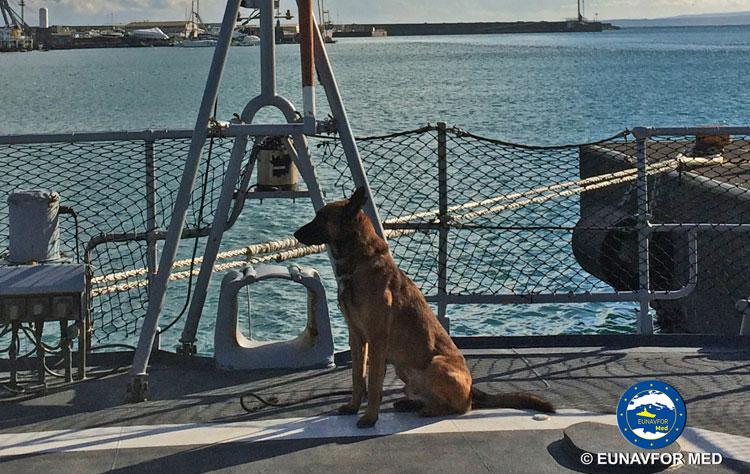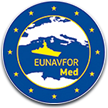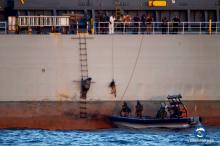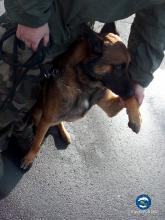French ship Commandant Ducuing’s mascot: a dog specialized in weapons and explosives detection
French ship Commandant Ducuing’s mascot: a dog specialized in weapons and explosives detection.

Since 10th of January 2017, French light frigate Commandant Ducuing is patrolling in Central Mediterranean, off the Libyan coasts, in the frame of European mission EUNAVFOR MED Sophia. In addition to the crewmembers, the French light frigate embarks a peculiar passenger, a 4 years old Malinois specialized in recognition of explosives and weapons. The ship’s mascot objective, led by his master, is to help the boarding team in the detection of potential illegal weapons during the visits of vessels sailing in the area of operation.
Every day, his master, a specialized member of the French navy riflemen, trains the dog during short exercises to maintain his abilities to detect gun powdery or arms. “He starts getting used to be at sea even when the weather conditions are not so good. It is important for him to keep on training to be able to fulfil his mission once on board another vessel”, his master says. The dog also joins the boarding team during the friendly approaches made by Commandant Ducuing in the aim to gather information about the maritime activities and security off the Libyan coasts. Since its arrival off the Libyan coasts, the French frigate conducted 6 of them inside international waters.
The presence of a specialized canine unit on board the French warship illustrates French navy and European Union’s commitment in the control and deterrence of illegal weapon traffic inside international waters to or from Libya. This action comes in accordance with the UN Security Council Resolution (UNSCR) 2292 (2016), which condemns the flows of arms to or from Libya, authorizing Member States acting nationally or through regional organizations to conduct inspections, seize and divert vessel suspected of transferring arms in the area of operation.
In the coming weeks, FS Commandant Ducuing will continue its patrols off the Libyan coasts to keep on identifying the vessels crossing the high seas and gathering precious information about the maritime security and activities in the region.



